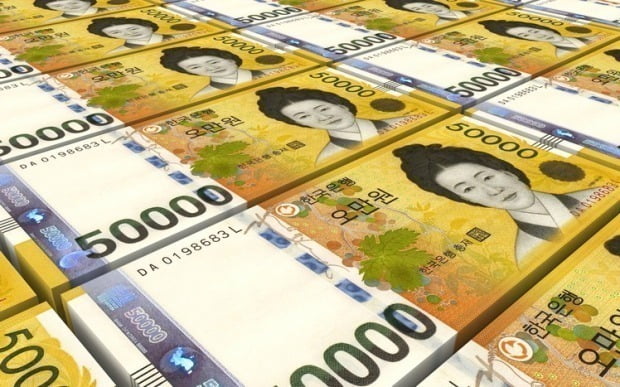Market concerns are growing as the ruling Democratic Party promotes a plan for the Bank of Korea to directly take over government bonds in the name of’corona damage compensation’ for self-employment (direct purchase of government bonds). The’Special Bill on Compensation for Loss and Win-win Growth for Overcoming Corona Infectious Diseases’, initiated by Rep. Min Byeong-deok, was made for the necessary financial resources. The bill stipulated that the BOK must purchase all government bonds to finance loss compensation. It means that it will promote’the monetization of government debt. It is interpreted as an intention to open the way to virtually unlimited issuance of deficit government bonds by mobilizing the issuing power of the BOK.
Forcing the BOK to directly purchase government bonds violates the central bank’s unique monetary policy management authority. In addition, the direct purchase of government bonds by the BOK leads to a drop in the value of the won (increased won-dollar exchange rates), leading to the withdrawal of foreign funds, and there is a high risk of economic disruption. For this reason, the US Central Bank (Fed) is not allowing direct purchase of government bonds. The BOK is also negative. Although there is a basis in Article 75 of the Bank of Korea Act (loan to the government), it is inappropriate to mandate direct purchase of government bonds at all. It is explained that the purchase of about 8 trillion won in deficit treasury bonds last year was to prevent the unrest in the bond market caused by the mismatch in the supply and demand of government bonds.
If the BOK’s direct purchase of government bonds is legalized, there are not one or two expected side effects. Above all, there is a high possibility that the government will consider the BOK as a’cash dispenser’ and increase government bonds. In that case, it is almost certain that the national debt will snowball from 940 trillion won to 1,000 trillion won this year. When Prime Minister Jeong Sye-gyun mentioned the introduction of a self-employed loss compensation system that would take a huge budget, the interest rate on government bonds soared was because she saw the possibility of overproducing government bonds in the market. Just yesterday, the 3-year Treasury Bond yield exceeded 1% per annum and reached the highest level in eight months since April 29 last year (1.006% per annum). If the market interest rate jumps in this way, the effect is halved no matter how low interest rates are maintained to stimulate the economy.
The biggest victims of these side effects will be the common people and the self-employed. This is because if the market interest rate jumps due to excessive government bonds, the interest burden of the low-income households and self-employed people with large debts increases, and the inflation shock is passed on. It is self-evident when you look back on who suffered great damage when the credibility of our economy fell during the financial crisis. It is necessary for the government to support the victims in emergency countries. However, the method should be in the direction of minimizing the burden on the country’s finances and economy. The BOK’s direct purchase of government bonds will not help the economically weak, but will increase damage.
Ⓒ Hankyung.com prohibits unauthorized reproduction and redistribution
